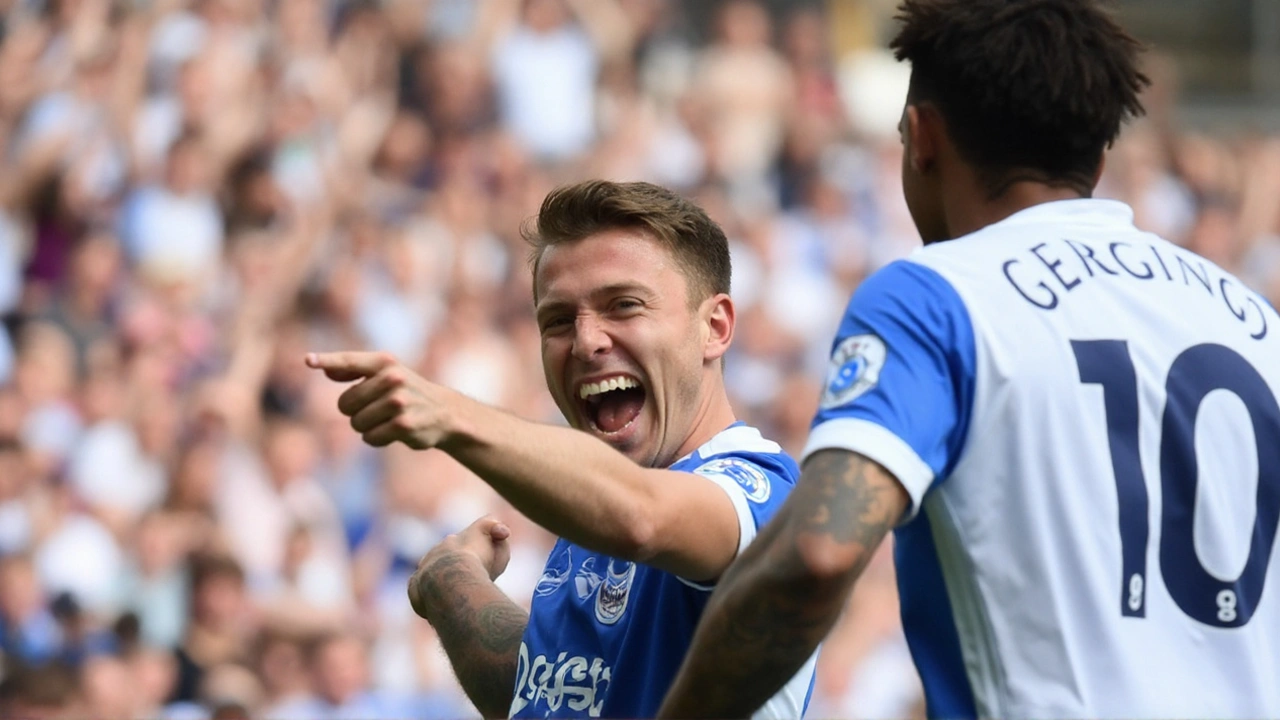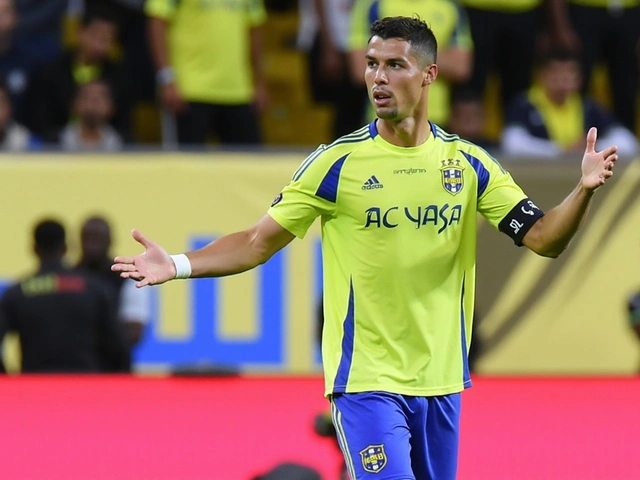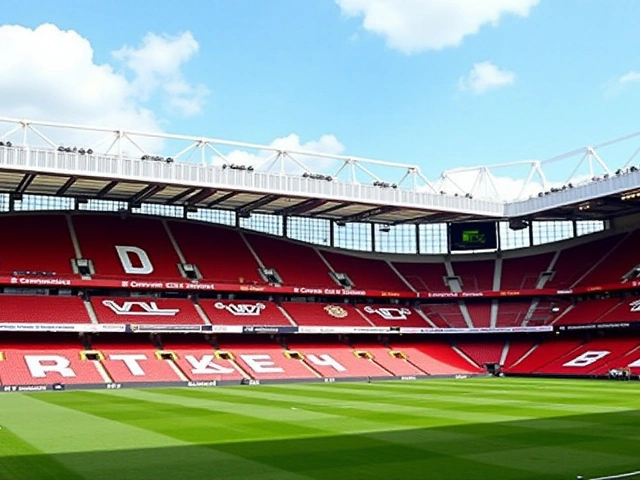Brighton flip the script as City lose their grip
Brighton did not blink. Trailing at home against the champions, they took a gift, rode the wave, and stung late to beat Manchester City 2-1 at the Amex Stadium. For Pep Guardiola, it was a second league loss in a row, coming just days after a flat 2-0 defeat to Tottenham. For the title race, it’s an early wobble that already opens a six-point gap City would rather not see.
The afternoon actually started on-message for City. Calm on the ball, compact out of possession, they controlled the first half and got the standard Erling Haaland moment. The Norwegian’s low, ruthless finish pushed him to 88 goals in 100 Premier League matches since landing in England in 2022. That number is absurd by any measure, and for a while it looked like it would carry City through another routine road win.
Brighton hung in. They didn’t chase recklessly. They kept their block tight, absorbed pressure, and waited for a mistake. It came midway through the second half. Matheus Nunes, protecting the box, raised an arm to block a shot. The referee pointed straight to the spot. James Milner, the veteran who has seen everything in this league, buried the penalty. 1-1, the Amex roared, and the energy flipped fast.
Guardiola saw the game change in the space of a whistle. “We forgot to play after the penalty,” he said later. City’s passing tempo dropped. The angles disappeared. The structure that had kept Brighton at arm’s length loosened. Instead of reasserting control, City backed off, invited counters, and looked uncertain between the lines.
The price for that hesitation came late. In the 89th minute, Brajan Gruda sprinted through a wide-open lane, rounded Ederson like it was training ground work, and rolled the winner into an empty net. One clean break was all it took. One missed tackle, one broken line, and the points were gone.
It wasn’t a one-off mood shift either. City have looked oddly fragile when the tide turns against them. Tottenham pushed them around in key moments. Brighton sensed the same softness and attacked it. That’s not how Guardiola teams usually behave. Normally, they slow things down after a punch, keep the ball, and suffocate chaos. Here, the opposite happened.
Why? Part of it is tactical. City’s shape depends on calm rest-defense—good spacing behind the ball, tight distances between center-backs and midfield, and quick pressure on the first pass after losing possession. When those layers slip, transitions hurt. Brighton found those gaps, especially between midfield and the back line, and drove at them with purpose. Even one yard too loose can be fatal against a team that breaks with speed.
Another part is personnel. The workload is already heavy, and there are knocks to manage. Guardiola hinted one key player could be out seven to eight weeks. That changes rotations and asks different players to carry more minutes early. It also exposes depth in defensive roles where City usually run like clockwork. You could see combinations still searching for rhythm.
Rodri did not sugarcoat it. He called out “kid mistakes.” That’s blunt language from a senior voice in the room and tells you how the dressing room felt. This wasn’t about a grand tactical failure or some genius from the opposition they’d never seen before. It was simple errors at the wrong time—poor body shape, slow reactions to second balls, lazy fouls around the box, and a lapse after the equalizer.
Even Haaland’s milestone goal could not mask those cracks. The striker did his job: finish the first real chance, set the tone, make Brighton chase. The problem was the supply line dried up after 1-0. City’s midfield stopped finding him early, the wingers stopped pinning Brighton’s full-backs, and the team fell into a flat rhythm. Instead of stretching the pitch, they played in front of Brighton and became predictable.
Give Brighton credit. They were disciplined and sure of themselves after the equalizer. Milner’s cool from the spot didn’t just tie the game; it woke up the ground and set a trap. Gruda provided the direct running the game was missing, and the back line stood up well in the final minutes when City tried to squeeze. That’s two in a row against City now. You don’t do that by accident.
This loss cuts a little deeper because of timing. It’s early, but a six-point hole can turn into a season-long chase in a league that punishes even short dips. City usually bank points in August and September and worry about margins in spring. Now they are chasing sooner than expected, with a busy calendar ahead and no breathing room.
Strip the emotion and the checklist of problems is clear:
- Transitions: The rest-defense line was too low after turnovers, with space in the channels. That made one pass enough to break pressure.
- Composure: After 1-1, the team tried to force plays. City are at their best when they slow the tempo and make the opponent run. They rushed.
- Box defending: The handball comes from a poor read. Arms up in the box is asking for trouble. It’s a controllable mistake.
- Leadership moments: After the equalizer, someone needed to grab the game for 5–10 minutes—commit a smart foul, recycle possession, reset shape. That didn’t happen.
There were bright spots, even if they don’t soothe much tonight. The first-half control was solid. The spacing and press triggers worked. Haaland stayed sharp. The build-up through midfield looked smooth until the penalty shock. That tells you the game plan was sound at the start. The problem was the reaction when it bent under pressure.
From Guardiola’s perspective, the solution is familiar: get back to basics. Keep the distances tight. Win the first duel after a turnover. Move the ball at pace when teams drop, then change gears when they step out. Those are City’s core habits. When they return, the results usually follow.
Brighton earned their moment. They didn’t need a flood of chances. They needed belief, patience, and exactly two clear looks—one from the spot and one with the game stretched. Against City, that’s often enough if you don’t blink. They didn’t.
What it means, and what comes next
For the table, it’s simple: City are six points back and under pressure to respond fast. The schedule won’t slow down. There will be midweek games, travel, and little time on the training ground to drill details. That raises the stakes for the next league fixture, where the performance may matter as much as the points. The narrative can escalate quickly in September if the basics aren’t fixed.
The dressing-room tone will matter. Rodri’s words suggest honest conversations are already happening. Guardiola, for his part, went straight to the point about mentality—“stopped to play” is as direct as it gets from him. Expect a week focused on simple reps: set the block, win second balls, clear the box, reset the tempo. No grand reinvention needed, just discipline.
One subplot to watch is how City manage minutes with injuries. That seven-to-eight-week absence hints at reshuffling roles, especially if it touches the spine. We may see different partnerships at the back, a tweak in the midfield pairings, or a more cautious approach out of possession to protect space behind.
As for Brighton, this is a marker win to build on. Two straight victories over City shape belief in a big way. The Amex crowd felt it. The team did too. Nothing fancy—just clarity in the plan and conviction in the execution. That travels well.
City have been here before. They’ve dropped points, absorbed criticism, then rattled off a run that made everyone forget the noise. But that switch doesn’t flip on its own. It takes a clean performance, a no-drama 2-0, and 90 minutes where the other team never smells blood. After Brighton, that’s the assignment.





Comments
Great to see City bouncing back after that loss. Even champions have off nights, but the squad’s depth will sort it out soon. Keep the faith, the title chase is still wide open. Let’s stay positive and enjoy the football.
Watching the Brighton upset, I’m reminded that football, like life, is a series of cycles where confidence can rise and fall like the tide.
When City seemed to have the game in their grasp, the quiet composure of the Seagulls taught us that patience is a virtue, not a weakness.
The penalty was a momentary crack in the armor, but it also opened a space for reflection on how momentum can shift in an instant.
In such moments, the collective mindset of a team determines whether they regroup or crumble.
Guardiola’s admission that they “forgot to play after the penalty” is a humble acknowledgment that even the most disciplined minds can lose sight of the present.
It is a reminder that tactical rigidity must be balanced with emotional flexibility.
The players who maintained their positional discipline, like Gruda’s sprint, illustrate the power of individual responsibility within a cohesive whole.
The lesson extends beyond the pitch: when we encounter setbacks, we must ask ourselves whether we are clinging to past successes or embracing the chance to adapt.
The Brighton side displayed a quiet confidence that was not shouted but felt, a subtle belief that they could win without banging on the doors.
Their ability to stay organized, absorb pressure, and strike decisively underscores the importance of strategic patience.
It also shows that the underdog’s morale can be a decisive factor when the favorite’s rhythm falters.
In the broader narrative of the season, this loss could be a catalyst for City to re‑evaluate their rehearsal of fundamentals, a kind of forced meditation on spacing, pressing, and transition.
If the team can internalise this, they will likely emerge stronger, having tasted the humility that fuels growth.
For fans, it’s a reminder to keep our expectations grounded, celebrate the moments of brilliance, and accept the occasional stumble as part of the beautiful chaos we love.
So, let’s take this as a teaching moment, a chance to appreciate the sport’s unpredictability while holding onto the hope that the best will rise again.
The Brighton victory was less about genius and more about City’s glaring laziness. The penalty was a textbook mistake, and the subsequent collapse shows a lack of mental fortitude. Guardiola’s excuses are just a veil over poor preparation. This is a warning sign for anyone still dreaming of an easy title.
Man city showed up like a bad take‑out order missing the sauce they promised they’d bring it was cold and soggy the defence was all over the place, Brighton just rode the wave and smacked a win home.
Come on City you got this keep pushin u’ll bounce back.
Love the drama ⚽️ it’s what makes the league fun! Let’s see if City can tighten up and grab the next three points 😊
The match highlighted deficiencies that must be addressed promptly the team needs to re‑establish its defensive cohesion.
After a loss like this, it helps to focus on the basics – close down quickly, keep the shape tight and recycle possession efficiently – that’s how you win back confidence 😊.
Oh joy, another night of City drama – just what the fans needed to keep the heart‑rate up.
It’s almost poetic how a simple penalty can turn a confident side into a jittery mess.
Bravo, Brighton, for turning the script into a Shakespearean tragedy for the blues.
City looked like they were playing checkers, not chess.
Let’s dissect this setback with the meticulous curiosity of a scholar examining a paradox.
City’s early dominance was a textbook illustration of possession‑based football, yet the momentary lapse after the penalty revealed an underlying fragility in their collective psyche.
Their inability to re‑impose the pressing structure suggests a lapse in the mental synchronization that normally binds Pep’s machine.
From a tactical standpoint, the transition phase was compromised by an over‑reliance on Haaland’s individual brilliance, neglecting the lateral support that usually mitigates such vulnerabilities.
Moreover, the midfield’s failure to occupy the intermediate channels allowed Gruda the space to exploit a one‑on‑one situation, a textbook example of space exploitation that any analyst would flag immediately.
In the grander scheme, this loss functions as a micro‑cosm of the season’s potential narrative: a squad capable of brilliance but precariously balanced on the edge of complacency.
Hence, the remedy lies not merely in physical adjustments but in reinstating the intangible cohesion – the shared belief that every turnover is an opportunity to press, not an invitation to retreat.
Re‑establishing that mindset will likely restore the seamless transitions that have defined City’s dominance in prior campaigns.
Honestly, this is the kind of far‑cical performance that makes me question the very merit of the Premier League’s elite status. Brighton executed a masterclass in disciplined football while City flailed like amateurs trying to reinvent a broken system. The penalty was a preventable blooper that exposed a lack of basic situational awareness; the subsequent surrender was pure theatrical defeat. It’s almost comical how Guardiola’s squad, supposedly the epitome of tactical sophistication, can be reduced to a nervous wreck by a single mistake.
What a spectacle! The drama unfolded with all the gravitas of a Shakespearean tragedy, yet the execution resembled a poorly rehearsed a‑capella performance. One must commend Brighton for seizing the moment with the poise of seasoned thespians, while City, draped in the mantle of inevitable triumph, succumbed to a cascade of missteps that could have been avoided with a mere dash of discipline. This episode shall be chronicled in the annals of football lore as a cautionary tale: never underestimate the quiet resolve of the underdog, for in the theatre of sport, the most compelling acts are often those that defy expectation.